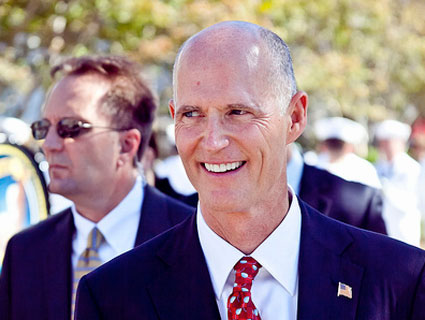Last week, Florida Governor Rick Scott signed off on an executive order that requires that many state employees and job applicants submit to mandatory drug tests. He’s also pushing state legislators to pass a bill that would subject welfare recipients to drug testing as well. But legal experts warn that Scott’s heavy-handed measures may be unconstitutional. The Miami Herald reports:
[F]ederal courts generally have ruled that such policies violate the U.S. Constitution’s Fourth Amendment right against unreasonable searches, say attorneys and legal scholars.
“You can’t do blanket tests like that. They’re facially unconstitutional,” said Ephraim Hess, a Davie attorney who prevailed over the City of Hollywood in April 2000 when U.S. District Court Judge Kenneth L. Ryskamp ruled that governments cannot require prospective employees to take drug tests unless there is a “special need,” such as safety.
Another federal court supported the ACLU in 2004, ruling that Florida had violated the Fourth Amendment by ordering random drug testing of all the agency’s employees. The ACLU now says that it’s prepared to represent any state employee who wants to challenge Scott’s new policy:
“The state of Florida cannot force people to surrender their constitutional rights in order to work for the state. Absent any evidence of illegal drug use, or assigned a safety-sensitive job, people have a right to be left alone,”” said Howard Simon, executive director of the ACLU of Florida. Simon said the ACLU would represent any state employee who would like to challenge the policy.
There’s one stakeholder, though, that could benefit from the governor’s new drug-testing push. As I reported last week, Scott’s own company, Solantic, conducts drug-testing for employers and employees alike and stands to profit from this proposal—among many others.













